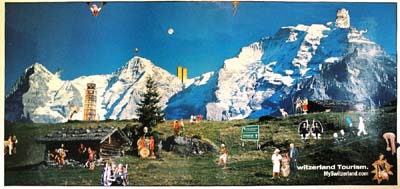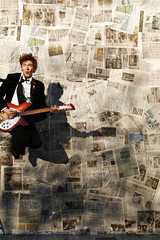ARTS: A Swiss Refuge From Hysteria in an Alpine Setting
LUCERNE, Switzerland, Aug. 21 - Lucerne, with its ancient center, Alpine surroundings and picturesque river and lake, is often described as the most beautiful town in Switzerland.
The Swiss will warn you, however, that the town's weather leaves much to be desired. Sure enough, downpours have been frequent through the first nine days of the Lucerne Festival.
The festival had its inception in 1938, when it was a refuge for musicians who could not or would not return to the Salzburg Festival in neighboring Austria after the Nazi takeover there. To this day, Lucerne provides a peaceful spot for musicians of divergent backgrounds and viewpoints who wish to be heard with equanimity.
Cynics say the absence of an opera house automatically ensures a lower level of hysteria here than at other major European festival locations. In any case, Lucerne's festival is unquestionably one of the most stimulating of its kind, and the culture center's concert hall, inaugurated in 1998, boasts acoustics (developed by Russell Johnson) that are among the world's finest.
William Tell, who may or may not have existed, is the symbol of Swiss resistance to Austrian invaders, so Rossini's "William Tell" Overture seemed a pointed if somewhat obvious choice to start the evening. But there was also a more important musical connection: the concert, which included a fine performance of Haydn's "Military" Symphony, ended with Shostakovich's Symphony No. 15, and that work's first movement includes repeated quotations from the final section of Rossini's overture.
In Lucerne this summer the Cleveland Orchestra is the only non-European ensemble among the six orchestras in residence. The Cleveland residency inaugurates a project (sponsored by the Roche pharmaceutical company) that connects the orchestra not only to the Lucerne Festival but also to Carnegie Hall in New York: each year the orchestra is to present the premiere of a work by a respected contemporary composer and then perform it at Carnegie.
Copyright: New York Times, Harvey Sachs



0 Comments:
Post a Comment
<< Home